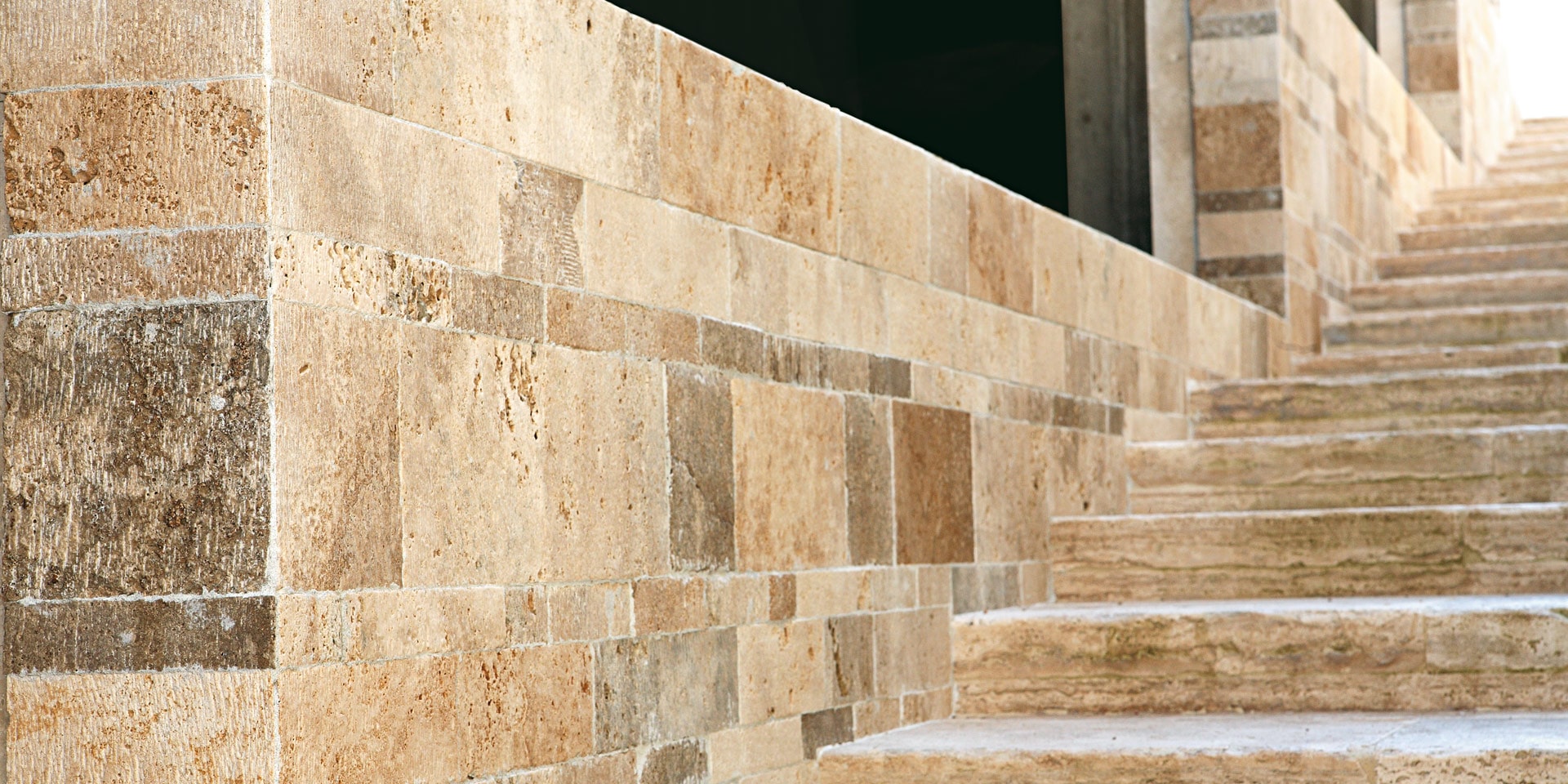Travertine is a natural stone that you can use to construct and decorate your place. It is a fascinating stone made of calcium carbonate from minerals and hot springs. Travertine stone has unique patterns and textures as a natural with different benefits and features as a highly porous material.
Porous and Durable:
It is famous for its porous texture. It contains tiny holes and voids, giving it a distinct texture, look, and surface. Mostly, grout is useful to fill the holes or left open. It depends on the desired look and level of maintenance required. Its porous nature also makes it an excellent selection for outdoor applications, allowing water to drain away quickly and reducing the risk of slips and falls.
Versatility of Travertine:
Travertine marble has a range of colors and patterns, making it a versatile material. So you can use it for various outdoor or indoor applications. Travertine color ranges from light beige to dark brown, with multiple shades in between. It can also have a variety of unique patterns, such as speckles, veins, and swirls. This makes it easy to find a travertine to complete any design scheme.
Benefits of Travertine Tile:
It has an attractive look and is highly durable and resistant to wear and tear. It is a hard stone that can keep heavy traffic, making it a perfect choice for flooring in high-traffic areas. Travertine flooring is also resistant to heat and moisture, making it a fine choice for kitchens and bathrooms. This stone demands minimal maintenance, and you can easily clean it with regular sweeping and mopping.
Discover the Beauty of Travertine:
It is a spectacular and classy material that can improve the refinement of any place. It has a natural and organic appearance, ideal for creating a warm and inviting ambiance. You can use it for various purposes, such as countertops, backsplashes, fireplaces, and outdoor patios. It is worth considering whether you are looking for a durable and practical material or an exquisite one.
Seal your Travertine Stone:
It’s essential to remember that Travertine is relatively softer than granite, making it more secure from scratches, chips, and other damages. Seal it properly to maintain its natural beauty and save your investment. Sealing Travertine is a simple process that should be done during installation and periodically after, usually every three to five years. Different types of sealers are available in the market, with enhancing and natural sealers being the most common. An enhancing sealer can darken the stone and give it a glossy or ‘wet’ look, while a natural sealer offers the same level of protection without altering the stone’s appearance.
Travertine marble in Pakistan:
Overall, many unique travertine elements make it a popular choice for homeowners and designers alike. Its unique texture, wide range of colors and patterns, durability, and beauty all contribute to its appeal. SK Stones has a variety of Travertine marble in Pakistan. Whether you are looking for a practical and durable material or a beautiful and elegant one, It is worth considering. If you are concerned about travertine marble prices in Pakistan, It can vary in size and design per your requirements.
FAQs
1. Can you use Travertine as an outdoor application?
It is highly suitable for outdoor applications as it is a porous material that allows water to drain away quickly, decreasing the risk of slips and falls.
2. Is it a durable material?
Yes, It is a highly durable material resistant to wear and tear. It can withstand heavy traffic, making it a perfect choice for flooring in high-traffic areas.
3. Do I need to seal my travertine stone?
Sealing your travertine stone during installation and periodically after, usually every three to five years, is recommended. This will help to keep its natural beauty and save your investment.
4. What types of sealers are available for Travertine?
Different types of sealers are available in the market, with enhancing and natural sealers being the most common. An enhancing sealer can darken the stone and give it a glossy or ‘wet’ look, while a natural sealer offers the same level of protection without altering the stone’s look.
Read More: How to become a successful marble supplier?

